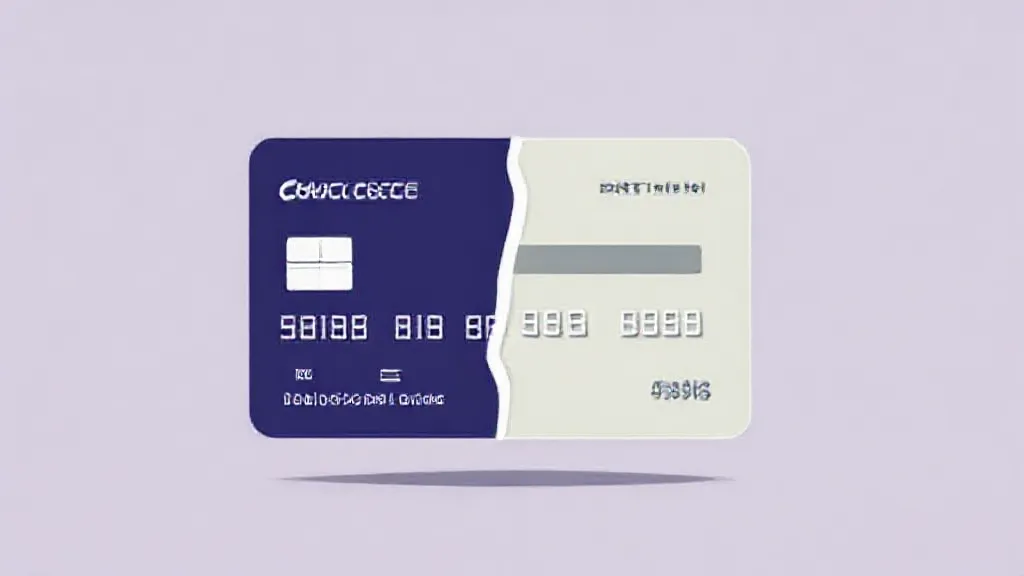Credit cards have become a ubiquitous part of modern financial life, offering convenience and flexibility to consumers. However, they also carry significant risks that can lead to financial distress. Understanding why credit cards are often seen as a double-edged sword is crucial for anyone looking to manage their finances effectively.
The Convenience of Credit Cards
One of the most appealing aspects of credit cards is their convenience. They allow consumers to make purchases without the need for cash, making transactions quick and easy. In addition, credit cards often come with rewards programs, cash back offers, and travel benefits that can enhance the consumer experience.
For example, many credit cards offer points for every dollar spent, which can be redeemed for travel, merchandise, or statement credits. This can incentivize responsible spending and provide tangible benefits to users.
The Risk of Debt Accumulation
Despite their advantages, credit cards can lead to significant debt if not managed properly.
The ease of swiping a card can lead to overspending, as consumers may not feel the immediate impact of their purchases. High-interest rates on unpaid balances can quickly compound, trapping individuals in a cycle of debt that becomes increasingly difficult to escape. According to the Federal Reserve, the average credit card interest rate hovers around 16%, which can result in substantial interest payments if balances are not paid in full each month.
Impact on Credit Scores
Credit cards also play a critical role in determining an individual’s credit score, which affects their ability to secure loans and mortgages. Responsible usage, such as making timely payments and maintaining low credit utilization, can positively impact credit scores. However, missed payments or maxing out credit limits can lead to significant drops in credit scores, making it harder to obtain favorable loan terms in the future.
This duality highlights the importance of understanding how credit card behavior can influence long-term financial health.
The Psychological Aspect of Spending
The psychological impact of credit card usage cannot be overlooked. The concept of "buy now, pay later" can lead to impulsive spending behaviors, as consumers may prioritize immediate gratification over long-term financial stability.
Research indicates that people are more likely to spend more when using credit cards compared to cash, as the physical act of handing over cash creates a tangible connection to the expenditure. This disconnect can lead to financial regret and stress, emphasizing the need for self-discipline when using credit cards.
Strategies for Responsible Use
To mitigate the risks associated with credit cards, consumers should adopt strategies for responsible use.
Setting a budget, tracking expenses, and paying off the balance in full each month are essential practices. Additionally, consumers should be mindful of the credit limit and avoid using more than 30% of their available credit to maintain a healthy credit utilization ratio. By implementing these practices, individuals can enjoy the benefits of credit cards while minimizing the potential for financial pitfalls.
The Role of Financial Education
Financial education plays a pivotal role in helping consumers navigate the complexities of credit card use. Understanding the terms and conditions associated with credit cards, including interest rates, fees, and rewards programs, can empower consumers to make informed decisions. Educational resources, such as workshops, online courses, and financial counseling, can provide valuable insights into managing credit effectively and avoiding common traps.
The Future of Credit Cards
As technology continues to evolve, the landscape of credit cards is also changing. With the rise of digital wallets and contactless payments, consumers are presented with new ways to manage their finances. While these innovations may enhance convenience, they also require consumers to remain vigilant about their spending habits.
The future of credit cards will likely involve a blend of traditional financial principles and modern technology, necessitating ongoing education and awareness.
Conclusion: Weighing the Pros and Cons
In conclusion, credit cards are indeed a double-edged sword, offering both significant benefits and potential risks. By understanding the implications of credit card use, consumers can make informed choices that align with their financial goals.
Balancing the convenience of credit with the responsibility of managing debt is essential for achieving financial stability and success.
